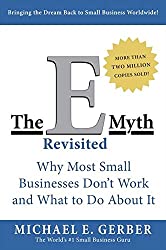
Rating: 8.0/10.
Second book I’ve read about negotiation; compared to the first book (Getting to Yes) which focused on finding mutually beneficial options, this book gives a more comprehensive view of all aspects of negotiation. Different negotiation styles are appropriate for different types of negotiations:
- Transaction negotiation is when stakes are high, and the deals are between strangers. In this case, a competitive personality does well, and both sides tend to use various tactics to get the best deal.
- Relationship negotiations are when you value the relationship with the other party, in which case the stakes don’t matter as much, both parties are more fair, and you’re likely to accommodate the other party. Often helps to establish a relationship with them before negotiations begin, often makes things go much more smoothly.
A successful negotiation relies on several pillars:
- Goals: have an optimistic goal of what you want to get out of the relationship, high but not absurd. This should be much higher than your “bottom line” — having higher goals often gets you better deals.
- Standards: rely on standards and precedents to your advantage, since deviating from them would appear inconsistent and unreasonable.
- Relationships: establish a relationship with them by giving a small gift or making small concessions, and the rest of it will go easier.
- Other party’s interests: be aware of what they want, so that you know why they might say “no”, and also think of mutually beneficial options.
- Leverage: which side has more to lose if deal falls through. The side with leverage is not necessarily the more powerful one, in the traditional sense.
Some useful tips for negotiating:
- Start the negotiation by establishing a relationship and asking lots of probing questions to determine both side’s interests. If you have leverage, make it known and credible; the threat is stronger than the execution.
- Don’t be the first to open (name a price), because you may be off by an order of magnitude, especially if you’re unfamiliar with the domain. Start off with a optimistic price that’s you can still say with a straight face, then go down slowly until you reach your expectation value.
- Overview of a bunch of tricks people can pull, like last minute bait-and-switch, exploding offer to create scarcity effect, various forms of deception. Good to know about these tricks and how to deal with them.
Finally, on ethics of negotiation: at the very least, you must obey the law in order to not commit fraud. Beyond that, some people treat it as a poker game where any amount of deceiving is allowed, some have strong moral principles against lying. A pragmatic middle ground is be generally truthful, but occasionally lie about non-material things (like bottom-lines, competing offers, authority to make deal) that can’t be verified.



